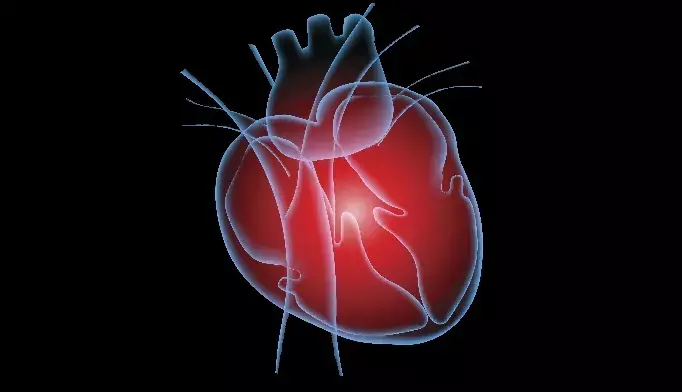- Home
- Medical news & Guidelines
- Anesthesiology
- Cardiology and CTVS
- Critical Care
- Dentistry
- Dermatology
- Diabetes and Endocrinology
- ENT
- Gastroenterology
- Medicine
- Nephrology
- Neurology
- Obstretics-Gynaecology
- Oncology
- Ophthalmology
- Orthopaedics
- Pediatrics-Neonatology
- Psychiatry
- Pulmonology
- Radiology
- Surgery
- Urology
- Laboratory Medicine
- Diet
- Nursing
- Paramedical
- Physiotherapy
- Health news
- Fact Check
- Bone Health Fact Check
- Brain Health Fact Check
- Cancer Related Fact Check
- Child Care Fact Check
- Dental and oral health fact check
- Diabetes and metabolic health fact check
- Diet and Nutrition Fact Check
- Eye and ENT Care Fact Check
- Fitness fact check
- Gut health fact check
- Heart health fact check
- Kidney health fact check
- Medical education fact check
- Men's health fact check
- Respiratory fact check
- Skin and hair care fact check
- Vaccine and Immunization fact check
- Women's health fact check
- AYUSH
- State News
- Andaman and Nicobar Islands
- Andhra Pradesh
- Arunachal Pradesh
- Assam
- Bihar
- Chandigarh
- Chattisgarh
- Dadra and Nagar Haveli
- Daman and Diu
- Delhi
- Goa
- Gujarat
- Haryana
- Himachal Pradesh
- Jammu & Kashmir
- Jharkhand
- Karnataka
- Kerala
- Ladakh
- Lakshadweep
- Madhya Pradesh
- Maharashtra
- Manipur
- Meghalaya
- Mizoram
- Nagaland
- Odisha
- Puducherry
- Punjab
- Rajasthan
- Sikkim
- Tamil Nadu
- Telangana
- Tripura
- Uttar Pradesh
- Uttrakhand
- West Bengal
- Medical Education
- Industry
Right Heart Catheterization improves outcomes of cardiogenic shock: Study

Right Heart Catheterization (RHC) in patients with cardiogenic shock is associated with improved outcomes, suggests a study published in the Journal of the American Heart Association.
The usefulness of right heart catheterization Right Heart Catheterization (RHC) has long been debated.
A group of researchers from U.S.A. conducted a study to study the real‐world impact of the use of Right Heart Catheterization (RHC) in cardiogenic shock.
In the Nationwide Readmissions Database using International Classification of Diseases, Tenth Revision (ICD‐10), we identified 236 156 patient hospitalizations with cardiogenic shock between 2016 and 2017.
The authors sought to evaluate the impact of Right Heart Catheterization (RHC) during index hospitalization on management strategies, complications, and outcomes as well as on 30‐day readmission rate.
A total 25 840 patients (9.6%) received Right Heart Catheterization (RHC) on index admission.
The results of the study are as follows:
· The Right Heart Catheterization (RHC) group had significantly more comorbidities compared with the non‐ Right Heart Catheterization (RHC) group.
· During the index admission, the Right Heart Catheterization (RHC) group had lower death and stroke rates.
· Thirty‐day readmission rates and death on readmission was also lower in the RHC group.
· After adjustment, Right Heart Catheterization (RHC) was associated with lower index admission, mortality, lower stroke rate, lower 30‐day readmission, and higher left ventricular assist device implantations/orthotopic heart transplants during rehospitalization.
· Results were not meaningfully different after excluding patients with cardiac arrest.
Thus, the researchers concluded that Right Heart Catheterization (RHC) use in cardiogenic shock is associated with improved outcomes and increased use of downstream advanced heart failure therapies. Further blinded randomized studies are required to confirm our findings.
Reference:
A study titled, "Right Heart Catheterization in Cardiogenic Shock Is Associated with Improved Outcomes: Insights From the Nationwide Readmissions Database" by Ranka S et. al published in the Journal of the American Heart Association.
DOI: doi/10.1161/JAHA.120.019843
Dr. Shravani Dali has completed her BDS from Pravara institute of medical sciences, loni. Following which she extensively worked in the healthcare sector for 2+ years. She has been actively involved in writing blogs in field of health and wellness. Currently she is pursuing her Masters of public health-health administration from Tata institute of social sciences. She can be contacted at editorial@medicaldialogues.in.
Dr Kamal Kant Kohli-MBBS, DTCD- a chest specialist with more than 30 years of practice and a flair for writing clinical articles, Dr Kamal Kant Kohli joined Medical Dialogues as a Chief Editor of Medical News. Besides writing articles, as an editor, he proofreads and verifies all the medical content published on Medical Dialogues including those coming from journals, studies,medical conferences,guidelines etc. Email: drkohli@medicaldialogues.in. Contact no. 011-43720751


